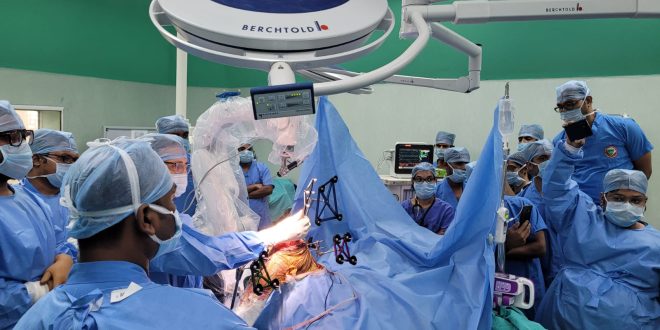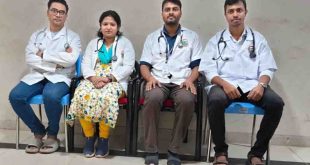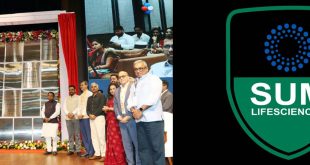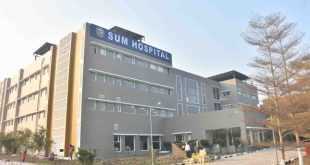Bhubaneswar: Robotic-assisted knee replacement surgery, which ensures greater precision and better result and is seen as the future of joint replacement, was conducted for the first time in Odisha at the Institute of Medical Sciences and SUM Hospital here on Saturday.
The surgery was conducted in the hospital under the supervision of Dr. Shekhar Srivastav, one of India’s leading experts in knee replacement.
Dr. Srivastav, Senior Consultant and Head of the Department of Orthopedics at Sant Parmanand Hospital, New Delhi, said that the primary goal of any surgery was to ensure that the procedure was accurate while making the patient comfortable.
“Accuracy and balancing of soft tissue around the knee are important in knee replacement surgery and robotic surgery is making it possible,” Dr. Srivastav told newspersons at the hospital.
The results are good even in conventional surgery but it doesn’t make all patients happy. But technology has enabled the experts to go for robotic-assisted surgery as it ensures consistency, accuracy and balance.
“The soft tissue damage is less and the patient can return to normal life much faster after the procedure,” he said.
Robotic-assisted surgery helps to plan the procedure properly, ensures that implant alignment is much better, causes less pain to the patient and leads to faster healing, Dr. Srivastav said adding young people were needing joint replacement in greater numbers now which was not the case earlier.
Replying to a question, he said the difference in expenditure between conventional surgery and robotic knee replacement was not more than 10 to 15 per cent.
Prof. (Dr.) Pusparaj Samantasinhar, Medical Superintendent of the hospital, said that the facility, which greatly minimises possibility of human error, had come to the state as technology driven treatment was expanding. Prof. (Dr.) Aniruddha Das, Head of department of Orthopedics in the hospital said the patient selected for the robotic knee replacement had been suffering for three to four years.
Most people, who live with the painful condition, prefer not to go for surgery and depend on medicines. But when medicines don’t work, it becomes difficult to treat the condition, he said.
“There is a great need for spreading awareness about knee problem and the benefit of knee replacement surgery. People need to be counseled about the procedure and result,” Prof. (Dr.) Das said.
Prof. (Dr.) Satya Nayak, Professor in the Department of Orthopedics in the hospital, was present during the media conference.
 Update Odisha-Latest Odisha News I Breaking News Get latest news on Odisha, Govt. Jobs, OSSC, OPSC, Entertainment, Crime, Sports, and Education
Update Odisha-Latest Odisha News I Breaking News Get latest news on Odisha, Govt. Jobs, OSSC, OPSC, Entertainment, Crime, Sports, and Education



